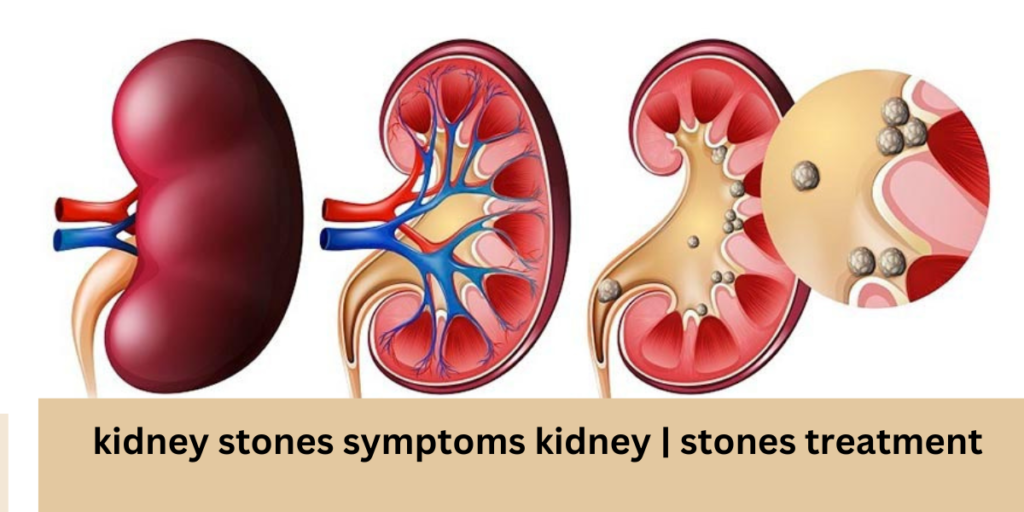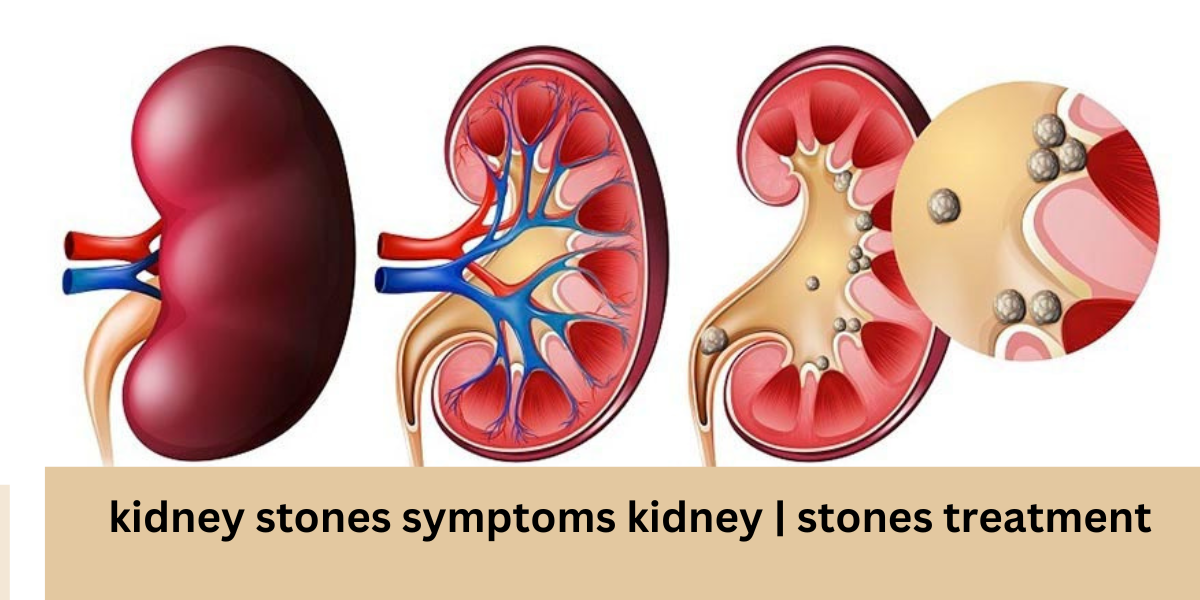Kidney stones, also known as renal calculi, are hard mineral and salt deposits that form in the kidneys. They can vary in size, ranging from as small as a grain of sand to as large as a golf ball. Kidney stones can be incredibly painful and may lead to various complications if left untreated. In this article, we will explore the causes, symptoms, and treatment options for kidney stones.

Introduction
Kidney stones are a common urological problem that affects millions of people worldwide. They form when certain substances in the urine, such as calcium, oxalate, and uric acid, crystallize and bind together. The resulting stones can cause significant pain and discomfort as they pass through the urinary tract.
Anatomy of the Kidneys
The kidneys are vital organs responsible for filtering waste products and excess fluid from the blood. They play a crucial role in maintaining electrolyte balance, regulating blood pressure, and producing urine. Each kidney is made up of small functional units called nephrons, which filter the blood and help in the production of urine.
What Are Kidney Stones?
Kidney stones are hard deposits that form in the kidneys when there is an imbalance in the urine’s mineral and salt concentration. They can be composed of different substances, such as calcium, oxalate, uric acid, cystine, or struvite. The size and location of the stone determine the symptoms and the appropriate treatment approach.
Types of Kidney Stones
There are several types of kidney stones, classified based on their composition:
- Calcium Stones: These are the most common type and are formed when calcium combines with oxalate or phosphate.
- Uric Acid Stones: These form when the urine is too acidic, leading to the crystallization of uric acid.
- Struvite Stones: Also known as infection stones, they are typically the result of urinary tract infections.
- Cystine Stones: These rare stones form due to a genetic disorder that causes the kidneys to excrete excessive amounts of certain amino acids.
Causes of Kidney Stones
Kidney stones can develop due to various factors, including:
- Dehydration: Insufficient fluid intake can lead to concentrated urine, increasing the risk of stone formation.
- Diet: A diet high in sodium, oxalate, and animal protein can contribute to the development of kidney stones.
- Family History: People with a family history of kidney stones are more prone to develop them.
- Medical Conditions: Certain medical conditions, such as gout, urinary tract infections, and inflammatory bowel disease, can increase the risk of stone formation.
- Medications: Some medications, such as diuretics and antacids, may increase the risk of kidney stones.
Risk Factors
Several risk factors can predispose individuals to kidney stone formation:
- Age and Gender: Men are more likely to develop kidney stones than women, and the risk increases with age.
- Obesity: Excess body weight can contribute to the formation of kidney stones. -High Blood Pressure: Hypertension can increase the risk of kidney stone formation.
- Certain Diets: Diets high in sodium, sugar, and processed foods can contribute to stone formation.
- Sedentary Lifestyle: Lack of physical activity can affect urinary function and increase the risk of stone development.
- Geographic Location: People living in hot and dry climates are more prone to dehydration, which can lead to stone formation.
Symptoms of Kidney Stones
The symptoms of kidney stones can vary depending on the stone’s size and location. Common symptoms include:
- Severe pain in the back or side, often radiating to the lower abdomen and groin.
- Blood in the urine, which may appear pink, red, or brown.
- Frequent urination.
- Cloudy or foul-smelling urine.
- Nausea and vomiting.
- Fever and chills (if an infection is present).
It’s important to note that small kidney stones may pass through the urinary tract without causing noticeable symptoms. However, larger stones can cause excruciating pain and require medical intervention.
Diagnosis
If kidney stones are suspected, several diagnostic tests may be performed:
- Imaging Tests: X-rays, ultrasounds, or CT scans can help visualize the presence, size, and location of kidney stones.
- Urinalysis: This test analyzes a urine sample for the presence of blood, crystals, or signs of infection.
- Blood Tests: Blood tests can provide information about kidney function and identify any underlying conditions contributing to stone formation.
Treatment Options
The choice of treatment depends on the size, location, and composition of the kidney stones. Treatment options include:
- Observation: Small stones that do not cause symptoms may be monitored closely, with pain management and increased fluid intake to facilitate passage.
- Medications: Medications can help control pain, alleviate inflammation, and promote stone passage in certain cases.
- Extracorporeal Shock Wave Lithotripsy (ESWL): This non-invasive procedure uses sound waves to break the stones into smaller pieces, allowing them to pass more easily.
- Ureteroscopy: A thin tube is inserted through the urinary tract to remove or break up stones located in the ureter or kidney.
- Percutaneous Nephrolithotomy: A surgical procedure used for large or complex stones that involves making a small incision in the back to remove or break up the stones.
Prevention
To reduce the risk of kidney stone formation, the following preventive measures can be taken:
- Hydration: Drink an adequate amount of water throughout the day to maintain dilute urine.
- Dietary Modifications: Limit sodium, oxalate-rich foods (such as spinach and rhubarb), and animal protein.
- Increase Citrus Intake: Citrus fruits, such as lemons and oranges, contain citrate, which can help prevent stone formation.
- Moderation in Calcium Intake: While excessive calcium intake can contribute to stone formation, adequate calcium consumption is essential for overall bone health.
- Regular Physical Activity: Engage in regular exercise to maintain a healthy weight and promote urinary function.
Complications
If left untreated, kidney stones can lead to various complications, including:
- Urinary Tract Infections: Stones can obstruct the urinary tract and provide a breeding ground for bacterial growth, leading to infections.
- Kidney Damage: Large or recurrent stones can damage the kidneys and affect their function over time.
- Urinary Obstruction: A stone that blocks the urinary tract can cause a backup of urine, leading to pain, infection, and potential kidney damage.
Dietary Recommendations
To help prevent kidney stone formation, it’s important to follow a balanced diet that includes:
- Plenty of fluids, especially water.
- Foods rich in fiber.
- Fruits and vegetables, such as citrus fruits, apples, and leafy greens.
- Low-fat dairy products.
- Moderate intake of animal protein.
- Limited sodium and oxalate-rich foods.
Lifestyle Changes
In addition to dietary modifications, certain lifestyle changes can help reduce the risk of kidney stone formation:
- Maintain a healthy weight through regular exercise and a balanced diet.
- Avoid excessive alcohol consumption.
- Quit smoking.
- Manage underlying medical conditions, such as high blood pressure or diabetes.
- Practice good hygiene to prevent urinary tract infections.
Home Remedies
While medical intervention is often necessary for the treatment of kidney stones, some home remedies may provide relief and support overall kidney health:
- Increasing fluid intake to promote urine production and flush out toxins.
- Drinking lemon water or adding lemon juice to water to increase citrate levels and help prevent stone formation.
- Consuming herbal teas, such as dandelion root or nettle leaf tea, which are believed to have diuretic properties.
- Applying heat to the affected area to alleviate pain and discomfort.
It’s important to note that home remedies should not replace medical treatment but can be used as supportive measures.
Conclusion
Kidney stones are a common urological condition that can cause significant pain and discomfort. Understanding the causes, symptoms, and treatment options is crucial for managing this condition effectively. By making dietary and lifestyle changes, staying hydrated, and seeking appropriate medical care, individuals can reduce the risk of kidney stone formation and promote overall kidney health.
FAQs (Frequently Asked Questions)
- Are kidney stones more common in men or women?
- Kidney stones are more common in men than in women.
- Can kidney stones be passed naturally without medical intervention?
- Small kidney stones can sometimes pass naturally with increased fluid intake and pain management. However, larger stones often require medical intervention.
- Can diet alone prevent the formation of kidney stones?
- While diet plays a significant role in kidney stone formation, other factors, such as genetics and underlying medical conditions, also contribute. It’s important to follow a balanced diet and consult with a healthcare professional for personalized advice.
- How long does it take to pass a kidney stone?
- The time it takes to pass a kidney stone varies depending on its size, location, and individual factors. It can range from a few days to several weeks.
- Can kidney stones come back after treatment?
- Yes, kidney stones can recur. Following preventive measures, such as staying hydrated and making dietary modifications, can help reduce the risk of recurrence.
